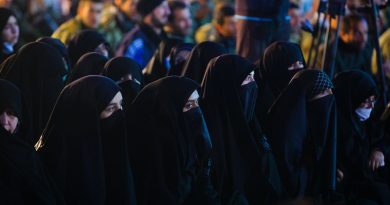Security Council Adopts New Sanctions Against DPRK
By Felipe Bueno
Staff Writer
On March 2, the United Nations Security Council adopted new, sweeping sanctions on the People’s Democratic Republic of North Korea following the state’s ballistic missile activities. The sanctions were issued in order to address the January 6 nuclear test and February 7 launch and, as the U.S. mission to the U.N. indicated that it would “make it much harder for the DPRK to raise funds, import technology, and acquire the know-how to continue its illicit nuclear and ballistic missile programs.” The resolution includes an extensive list of what cannot be exported into the country, such as arms in any capacity or technologies to further the nuclear arms race of North Korea. In addition to exports, the resolution imposes new cargo inspection and maritime procedures in order to “limit the DPRK’s ability to transfer U.N.-prohibited items.”
Not only does the resolution cripple the resources imported by North Korea, but it also severely cripples the state’s current investments and assets by imposing sectoral and financial sanctions. These sanctions are meant to target the DPRK’s trade in resources and banking assets by limiting its exporting of natural resources except for livelihood purposes and freezing the assets of government entities linkedto their nuclear program.
Despite Russia and China’s position as North Korea’s two largest allies, the resolution was passed unanimously, reflecting Secretary-General Ban Ki-moon’s belief that the missile tests “threaten international peace and security.” The Ambassador of the Republic of Korea, Oh Joon, released an unscripted message to the DPRK asking them to “wake up, open your eyes, and look out at what is happening in the world…. And we can all live together in safety and peace.”
As the Washington Post reported, the political pressure placed on North Korea was not taken lightly. Kim Jong Un ordered the nuclear arsenal to be at the ready. He claimed that the “ferocious hostility” of the sanctions leveled against North Korea reached “gangster-like” proportions. Following his military movements, the North Korean military fired six projectiles 100 miles into the Sea of Japan, with South Korea’s Defense Ministry stating that the projectiles were artillery rockets or short-range ballistic missiles. Following this act of aggression, a South Korean and U.S.-working group met on Friday to discuss deploying the anti-ballistic missile system known as THAAD. Despite the THAAD system sent into South Korea and the ensuing joint military operations between the US and South Korea in response to the missile testing, North Korea views this action as preparation for an invasion.
As the New York Times reported, the effect of the sanctions has been felt immediately following the impounding of a North Korean cargo vessel by the Philippine government. The Jin Teng, a vessel that was registered and flagged as a North Korean vessel, was detained and inspected in accordance with the sanction mandates. While nothing on board was found besides a palm oil extract, the fact that nations are abiding by the resolution is a step in the right direction.

